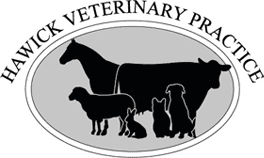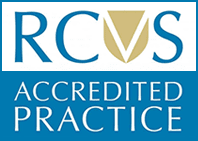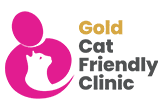Following the announcement that the period of lockdown is to continue, we would like to clarify how this applies to horse owners and trainers. Our number one priority is to be able to maintain our 24 hour, 7 day a week service to horses requiring urgent and emergency treatment, whilst protecting both human health and our colleagues in the NHS by following the recommendations to help slow the spread of COVID-19.
At a very challenging and worrying time for everyone, we appreciate your understanding and patience as we adapt to providing a veterinary service under restrictions. We are following guidelines from both the government and the British Equine Veterinary Association (BEVA), which may be subject to change as the situation evolves.
Collecting medication and essential supplies
- Please phone to order any medication or essential supplies, where possible allowing 48 hours notice for our vets to dispense the medication.
- Our vets will either dispense the medication or phone you to discuss alternatives. Please note that there may be some disruption to our supply chains but we are working hard to ensure that we have suitable products for your needs.
- A member of the team will phone you to advise you when the medication may be collected.
- Please alert us of your arrival outside the practice, preferably by phone, however stay in your car and someone will bring your order to you or advise you to collect it from the drop box at the side door of the practice.
Non-essential procedures
- All routine procedures, including pre-purchase examinations, routine dentistry, routine health checks, poor performance/mild lameness examinations etc. are postponed until further notice.
- It may be suitable to offer a telephone/video consultation assisted by videos and photographs. This may allow our vets to then be able to prescribe treatment remotely. If you have any concerns regarding your horse please contact us and we will be happy to advise.
- Castrations may become a welfare or human safety issue if the current situation continues for several months and into the summer, therefore where appropriate, it may be possible to perform some of these procedures. Please contact us to discuss specific cases and circumstances.
Vaccinations
Tetanus
- The tetanus vaccine is very important as this can often be a fatal condition in horses. We have also had cases of tetanus in the practice. It has a much longer protection time than the equine flu vaccine, meaning we only boost tetanus every two years. As a result, it is likely that horses are protected for many months beyond that.
- If your horse has not had a tetanus or flu/tetanus combination vaccine and sustains a wound, it is likely to need a tetanus anti-toxin injection to help prevent tetanus.
- If your horse has not completed its primary course of three vaccines for tetanus or flu/tetanus please contact the surgery.
In all of the above cases, please contact us to discuss individual circumstances if you have any concerns.
Equine flu
- As horse movements are currently restricted, the risk to your horse as a result of going overdue is minimal for equine flu. We understand that there are consequences for competing but these are exceptional circumstances and we will work to help to share the financial burden of any restarts.
- 6-monthly equine flu boosters will not be given. For the remainder of 2020, for a horse to be eligible to compete in Britain it needs to have received a flu vaccine within the last 12 months, instead of the existing 6 or 9 month requirement for horses competing under BHR or BEF rules.
For other equine vaccines, the decision as to whether or not to vaccinate will be made on a case-by-case basis by the vet after weighing up the risks and benefits.
Ill and Injured horses
Currently, all calls will enter a telephone triage system. We are experiencing more phone calls than normal so thank you for your patience. If your call is of an urgent nature please make reception aware of this when speaking to them.
- You may be offered a telephone/video consultation and advice. The vet may ask you to take some photos or videos to help them assess your horse remotely and provide a treatment plan without a physical visit.
- For cases where physical examinations are necessary, we ask that no one showing COVID-19 symptoms or that is self-isolating should be present during the examination. Please ask another person to present the horse where possible.
- Social distancing (more than 2meters) must be practised unless there is an urgent and immediate threat to welfare e.g. a mare with foaling issues. This is very challenging within a stable and there may be situations where it is necessary to sedate or tie up your horse to minimise close contact. This is to protect you and your family as well as our staff and other clients.
The latest BEVA guidelines have been designed to reduce the risk of a visit and we would be grateful if these could be followed:
- Your vet will minimise the time spent at your property. You should not expect your vet to enter into discussion at the time but rather collect a history beforehand and inform you of their findings/instructions by telephone or video.
- Only one person from your property should assist the veterinary surgeon (even if horses belonging to a number of different owners are being examined / treated) except in exceptional circumstances such as a foaling.
- Physical distancing (at least 2 metres) should be maintained throughout the veterinary visit.
- A strategy for sedation may be discussed with you to facilitate the examination/treatment without compromising physical distancing. Your vet may want to sedate the horse to allow physical distancing when in normal circumstances sedation would not be necessary; you should respect your veterinary surgeon’s judgement or postpone the visit until there is less risk to human health from COVID-19.
- Gloves should be worn by everyone throughout the visit.
- You should not touch any veterinary equipment and should remain a minimum of 2 metres from it and from the vet’s car at all times.
- You should determine where the veterinary surgeon can park so that they can avoid contact with others on the yard and minimise the length of their visit. A means of alerting you to the vet’s arrival should also be discussed.
- You should not expect the vet to enter an office, house, coffee room or any other building other than to see the horse or wash their hands.
- Please ensure there are facilities for hand-washing available. If there are none then make the vet aware of this prior to the visit.
- Do not expect your vet to do additional tasks that have not been discussed prior to their visit
- Please be considerate and respectful to your vet. There is no obligation for them to place themselves at risk by attending your property at this challenging time.
Caring for your horse and riding during COVID-19
The latest advice from the BHS states:
“Horse welfare is critical and grooms or the sole carer for a horse should travel to provide care for horses. Where horses are kept in livery the BHS advises that horse owners respect the protocol put in place by the yard owner or manager and work as a team to agree a care plan for your horse(s).We are getting a lot of questions in relation to riding your horse, for which there are no specific government guidelines at present. We advise that it is not appropriate to put unnecessary pressure on the emergency services and everyone should make their own individual decision as to whether riding is necessary at this time.”





